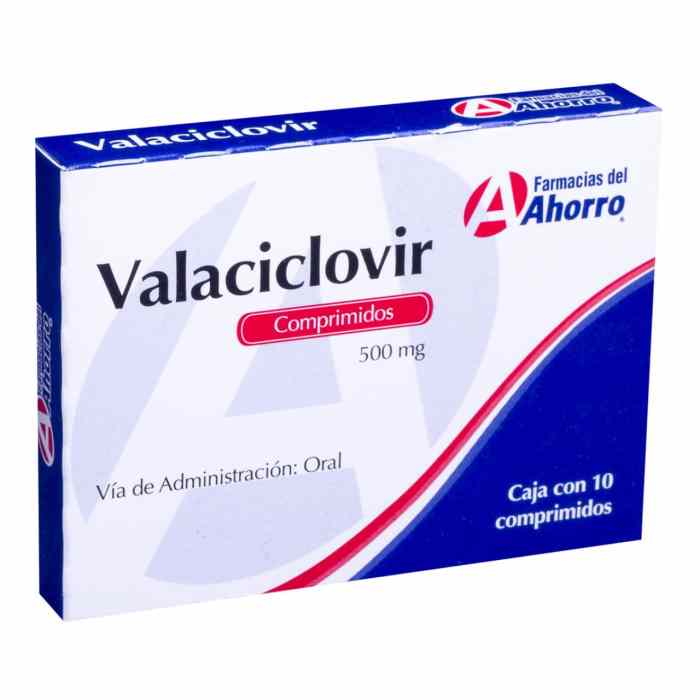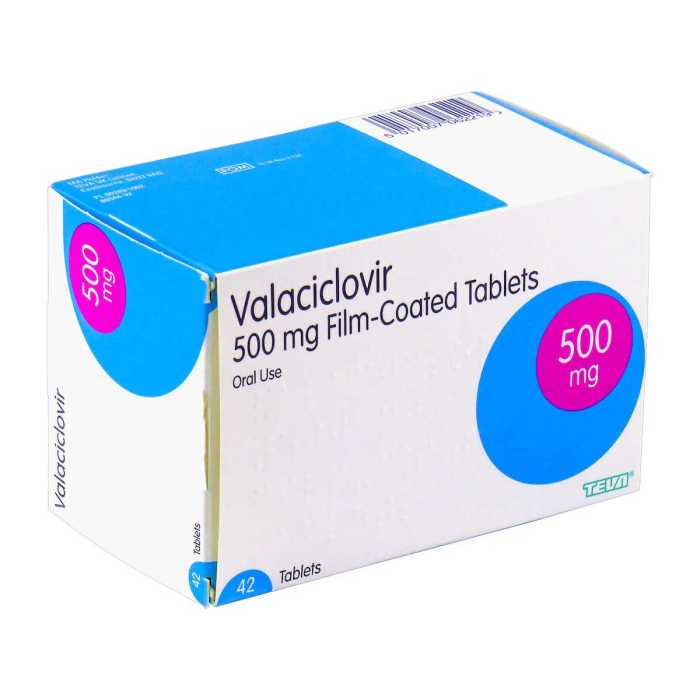Valaciclovir is a powerful antiviral medication that plays a crucial role in managing various viral infections, primarily those caused by herpes simplex virus (HSV) and varicella-zoster virus (VZV). This medication, available in various formulations, works by inhibiting the replication of these viruses, effectively preventing or reducing the severity of their associated symptoms. Valaciclovir’s effectiveness stems from its unique chemical structure and mechanism of action, making it a valuable tool in the arsenal of antiviral treatments.
Valaciclovir’s journey through the body, its absorption, distribution, metabolism, and elimination, are carefully studied and understood, allowing for precise dosing and minimizing potential drug interactions. Extensive clinical trials have established valaciclovir’s efficacy and safety profile, making it a reliable option for treating a wide range of patients, including those with specific health conditions like renal or hepatic impairment. However, as with any medication, there are potential side effects and considerations for use in specific populations, such as pregnant women and children, which are carefully addressed and monitored by healthcare professionals.
Patient Education and Counseling: Valaciclovir

This leaflet provides important information about Valaciclovir, a medication used to treat certain viral infections. Please read this leaflet carefully before you start taking Valaciclovir and keep it for future reference.
Understanding Valaciclovir
Valaciclovir is an antiviral medication that helps to fight the herpes simplex virus (HSV) and varicella-zoster virus (VZV). These viruses can cause a variety of infections, including:
- Genital herpes
- Oral herpes (cold sores)
- Shingles
- Chickenpox
Valaciclovir works by reducing the amount of virus in your body, which helps to prevent the spread of the infection and relieve symptoms.
Dosage and Administration
The dosage of Valaciclovir will vary depending on the type of infection you are being treated for and your individual needs. Your doctor will prescribe the right dose for you. It is important to follow your doctor’s instructions carefully.
- Valaciclovir is usually taken by mouth with a glass of water.
- It can be taken with or without food.
- Do not crush, break, or chew the tablets. Swallow them whole.
- It is important to take Valaciclovir at the same time each day.
Importance of Adherence
It is important to take Valaciclovir exactly as your doctor prescribes. Do not stop taking it, even if you feel better. If you miss a dose, take it as soon as you remember, unless it is almost time for your next dose. Do not take a double dose to make up for a missed dose.
Potential Side Effects
Like all medications, Valaciclovir can cause side effects, but not everyone experiences them. Common side effects include:
- Headache
- Nausea
- Diarrhea
- Fatigue
- Dizziness
If you experience any side effects, talk to your doctor or pharmacist.
Interactions
Valaciclovir may interact with other medications you are taking. It is important to tell your doctor about all the medications you are taking, including over-the-counter medications, vitamins, and herbal supplements.
Pregnancy and Breastfeeding
It is important to talk to your doctor if you are pregnant, planning to become pregnant, or breastfeeding. Valaciclovir may not be safe for you to take during pregnancy or breastfeeding.
Storage
Store Valaciclovir at room temperature, away from light and moisture. Keep it out of reach of children.
Disclaimer
This leaflet is intended for general information purposes only and should not be considered medical advice. Always consult with your doctor or pharmacist for specific instructions and guidance.
Valaciclovir in the Context of Public Health

Valaciclovir, an antiviral medication, plays a significant role in managing and preventing viral infections, particularly herpes simplex virus (HSV) and varicella-zoster virus (VZV). Its impact on public health is multifaceted, influencing both individual health outcomes and broader societal considerations.
Impact of Valaciclovir on Viral Infection Management
Valaciclovir’s effectiveness in treating and managing viral infections stems from its ability to inhibit viral replication. It is a prodrug that converts into acyclovir, a nucleoside analog, within the body. Acyclovir competes with guanine, a natural building block of DNA, during viral replication. By interfering with this process, valaciclovir prevents the virus from producing new copies of itself, effectively halting the infection.
Valaciclovir’s effectiveness in managing viral infections has led to several positive outcomes for public health.
- Reduced severity and duration of symptoms: Valaciclovir effectively reduces the severity and duration of symptoms associated with HSV and VZV infections, improving patient comfort and quality of life.
- Prevention of recurrent outbreaks: For individuals prone to recurrent outbreaks of HSV or VZV, valaciclovir can help prevent or reduce the frequency and severity of these outbreaks, improving their overall health and well-being.
- Improved management of chronic conditions: Valaciclovir plays a crucial role in managing chronic conditions like herpes simplex encephalitis, a serious complication of HSV infection, and postherpetic neuralgia, a painful condition that can occur after shingles.
Role of Valaciclovir in Preventing Viral Transmission
Valaciclovir’s impact extends beyond managing individual infections; it also plays a crucial role in preventing viral transmission.
- Suppression of viral shedding: Valaciclovir can suppress viral shedding, reducing the risk of transmission to others. This is particularly important for individuals with active HSV or VZV infections, who can unknowingly transmit the virus to others.
- Reducing the risk of neonatal herpes: Valaciclovir can be used to prevent the transmission of HSV from pregnant women to their newborns. Neonatal herpes is a serious condition that can cause significant health problems for infants.
- Promoting safer sexual practices: Valaciclovir can reduce the risk of HSV transmission through sexual contact, promoting safer sexual practices and reducing the overall burden of HSV infections.
Valaciclovir has revolutionized the management of viral infections, providing a safe and effective treatment option for millions worldwide. Its widespread use has not only improved patient outcomes but also contributed to the understanding of viral evolution and the development of new antiviral therapies. Ongoing research continues to explore the potential of valaciclovir in managing other viral infections and developing novel combination therapies. As we delve deeper into the complexities of viral diseases, valaciclovir remains a crucial tool in the fight against these formidable pathogens.
Valaciclovir is an antiviral medication commonly used to treat herpes simplex virus infections, but it’s not the only medication that targets viral infections. For example, xolair is a monoclonal antibody that targets a specific protein involved in allergic reactions, offering relief from symptoms like asthma and hives. While valaciclovir fights viruses, xolair tackles the immune system’s overreaction to allergens, demonstrating the diverse approaches to combating disease.